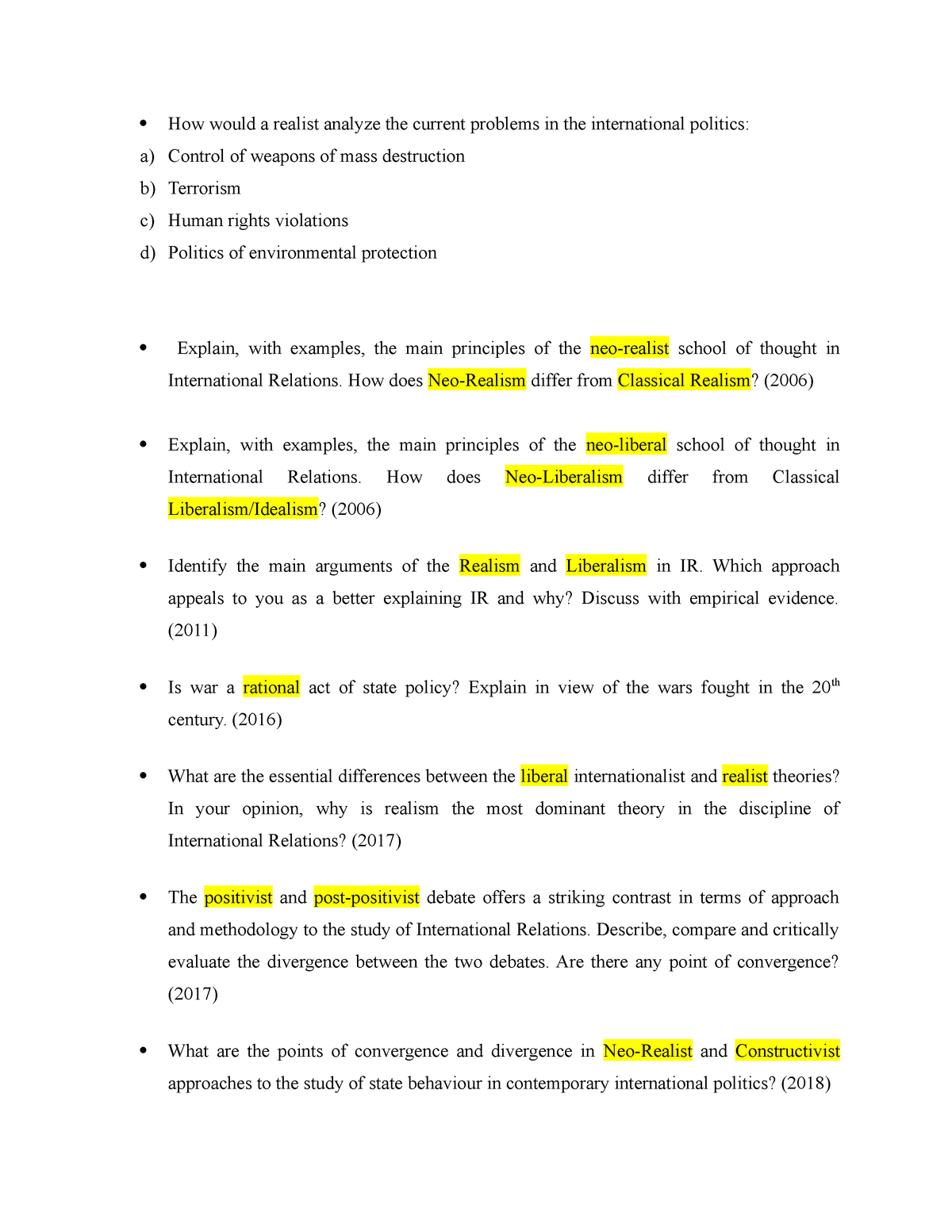Q.3 What are the points of convergence and divergence in Neo-Realist and Constructivist approaches to the study of state behaviour in contemporary international politics? 2018

Neo-realism and Constructivism are two of the most prominent theoretical approaches in the study of state behaviour in contemporary international politics. While there are points of convergence between these two approaches, there are also significant points of divergence.
Points of convergence:
- Both neo-realism and constructivism acknowledge that the international system is anarchic and that states operate in a self-help environment.
- Both approaches recognize the importance of power in shaping state behaviour, although they differ in their conceptualization of power.
- Both approaches also acknowledge the role of institutions in shaping state behaviour, although they differ in their views on the importance of institutions.
Points of divergence:
- Conceptualization of the international system: Neo-realism sees the international system as a self-help system where states are primarily concerned with maximizing their power and security. On the other hand, constructivism views the international system as a social construction, where norms and identities shape state behaviour.
- Importance of institutions: While neo-realism sees institutions as relatively unimportant in shaping state behaviour, constructivism argues that institutions have the power to shape state behaviour by creating and reinforcing norms and identities.
- Understanding of power: Neo-realism sees power in terms of military and economic capabilities, whereas constructivism sees power as socially constructed through norms and identities.
- Emphasis on agency and structure: Neo-realism places greater emphasis on the role of structure in shaping state behaviour, whereas constructivism places greater emphasis on the agency of actors in shaping the international system.
- Role of ideas and norms: Constructivism places greater emphasis on the role of ideas and norms in shaping state behaviour, whereas neo-realism tends to focus more on material factors such as military and economic power.
In summary, while there are some points of convergence between neo-realism and constructivism in their approach to the study of state behaviour in contemporary international politics, there are also significant points of divergence. These differences reflect broader debates within the field of international relations over the role of structure, agency, and ideas in shaping state behaviour in the international system.